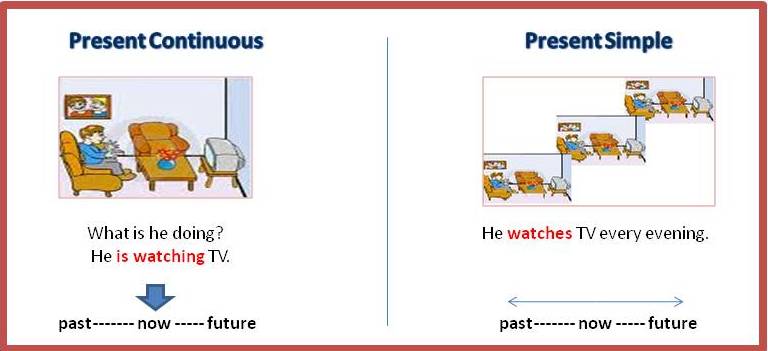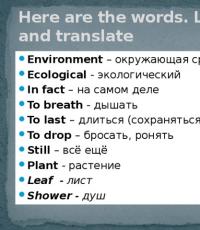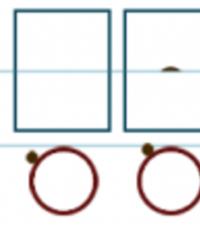Задания на настоящее длительное время в английском языке. Упражнения Present Continuous
1. My book (to lie) on the table.
2. They (to work).
3. The doctor and her patient (to talk).
4. We (to cook) dinner. My mother (to make) a salad.
5. A young man (to drive) a car. He (to listen) music.
6. My grandfather (to read) a book.
7. The pen (to lie) on the floor.
8. You (to have) a break?
9. She still (to sing).
Упражнения 2. Переведите на английский язык и раскройте скобки, употребляя глаголы в Present Continuous. (NOW)
1.Мы пишем.
_____
2. Они не читают.
__
3. Она не работаем.
______________________________________________________________________
4. Вы смотрите?
______________________________________________________________________
5. Он не читает.
______________________________________________________________________
6. Они не играют на пианино.
______________________________________________________________________
7. Я не пеку торт.
______________________________________________________________________
8. Она не поет.
______________________________________________________________________
9. Ее сестра не спит.
______________________________________________________________________
10. Бабушка не пьет чай?
______________________________________________________________________
11. Твои друзья пьют кофе?
______________________________________________________________________
12. Она работает за столом.
______________________________________________________________________
13. Я пишу письмо.
______________________________________________________________________
14. Я делаю упражнение.
______________________________________________________________________
15. Мальчики не плавают в бассейне.
______________________________________________________________________
16. Они играют в футбол?
______________________________________________________________________
17. Моя сестра моет пол.
______________________________________________________________________
18. Моя подруга помогает своему ребенку.
______________________________________________________________________
19. Ты помогаешь папе?
______________________________________________________________________
20. Ученики читают интересную историю.
______________________________________________________________________
21. Они читают книгу.
______________________________________________________________________
21. Она идет в школу.
______________________________________________________________________
22. Они читают?
______________________________________________________________________
23. Твоя бабушка кушает конфеты?
______________________________________________________________________
24. Джон готовит ужин.
______________________________________________________________________
25. Билл бегает в парке.
______________________________________________________________________
Упражнения 3. Раскройте скобки, употребляя глаголы в Present Continuous.(NOW)
1. The boys (to run) about in the garden. 2 I (to do) my homework. 3. John and his
friends (to go) to the library. 4. Ann (to sit) at her desk. She (to study) geography. 5. A young
man (to stand) at the window. He (to smoke) a cigarette. 6. The old man (to walk) about the room.7. The dog (to lie) on the floor. 8. You (to have) a break? 9. What language you (to study)? 10. Who (to lie) on the sofa? 11. What they (to talk) about? 12. It still (to rain).
Упражнения 4. Переведите на английский язык, употребляя глаголы в Present Continuous.
1. Я читаю.
2. Он не пишет.
_______________________________________________________________________
3. Мы не работаем.
_______________________________________________________________________
4. Вы читаете?
_______________________________________________________________________
5. Он спит?
_______________________________________________________________________
6. Ник и Майк играют в футбол.
_______________________________________________________________________
7. Кэйт играет на рояле.
_______________________________________________________________________
8. Она не поет.
_______________________________________________________________________
9. Моя сестра спит.
______________________________________________________________________
10. Папа пьет чай?
_______________________________________________________________________
11. Твои родители пьют чай?
_______________________________________________________________________
12. Я не сплю.
______________________________________________________________________
13. Она сидит за столом.
_______________________________________________________________________
14. Мы делаем упражнение.
______________________________________________________________________
15. Мы не купаемся.
______________________________________________________________________
16. Они играют во дворе?
______________________________________________________________________
17. Нина и Энн моют пол.
______________________________________________________________________
18. Ник помогает маме.
______________________________________________________________________
19. Ты помогаешь папе?
______________________________________________________________________
20. Моя сестра читает интересную книгу.
____________________________________________________________________
21. Они идут в школу.
____________________________________________________________________
22. Вы идете в школу?
_________________________________________________________________
23. Он работает?
_____________________________________________________________________
24 .
Твоя бабушка идет в магазин?
___________________________________________________________________
25. Он покупает конфеты.
______________________________________________________________
26. Что делает твоя сестра?
_________________________________________________________________
27.
Где играют дети?
__________________________________________________________________
28. Почему ты смеешься?
________________________________________________________________
29. Куда они идут?
_________________________________________________________________
30. Что несут эти мальчики?
| Ответы |
1. He (to work) in the centre of the city.
2. I (to write) an exercise now.
3. You (to go) to school on Saturdays?
4. We (not to dance) every day.
5. They (to play) in the room now?
6. Where he (to live)? – He (to live) in a village.
7. He (to sleep) now?
8. They (to read) many books.
9. The children (to eat) soup now.
10. He (to help) his mother every day.
11. You (to play) the piano well?
12. Look! Kate (to dance) now.
1. His father (not to watch) TV at the moment. He (to sleep) because he (to be) tired.
2. Where your cousin (to work)? – He (to work) at school.
3. Your friend (to do) his homework now?
4. When you usually (to come) home from school? – I (to come) at four o’clock.
5. My mother (not to play) the piano now. She (to play) the piano in the evening.
6. You (to read) a magazine and (to think) about your holiday at the moment?
7. I (to sit) in the waiting room at the doctor’s now.
8. When you (to listen) to the news on the radio?
9. You (to play) chess now?
10. My uncle (not to work) at the shop.
11. Look at the sky: the clouds (to move) slowly, the sun (to appear) from behind the clouds, it (to get) warmer.
12. I (not to drink) coffee in the evening. I (to drink) coffee in the morning.
13. What your sister (to do) now? – She (to wash) the dishes.
14. Your father (to work) at this factory?
Ответы
1. Раскройте скобки, употребляя глаголы в или .
3. Do you go … ?
4. do not (=don’t) dance …
5. Are they playing … ?
6. Where does he live? – He lives in a village.
7. Is he sleeping now?
11. Do you play the piano well?
2. Раскройте скобки, употребляя глаголы в или .
1. is not (isn’t) watching TV… He is sleeping because he is tired.
2. Where does your cousin work? – He works at school.
3. Is your friend doing his homework now?
4. When do you usually come home from school? – I come at four o’clock.
5. My mother is not (=isn’t) playing the piano now. She plays the piano in the evening.
6. Are you reading a magazine and thinking about your holiday at the moment?
7. I am sitting in the waiting room at the doctor’s now.
8. When do you listen to the news on the radio?
9. Are you playing chess now?
10. My uncle does not (=doesn’t) work at the shop.
11. Look at the sky: the clouds are moving slowly, the sun is appearing from behind the clouds, it is getting warmer.
12. I do not (=don’t) drink coffee in the evening. I drink coffee in the morning.
13. What is your sister doing now? – She is washing the dishes.
14. Does your father work at this factory?
Знание английского языка на сегодняшний день – это, бесспорно, необходимость. Но мало иметь хороший словарный запас, нужно ещё уметь грамматически составлять предложения.
Основой в грамматике являются времена Present Simple и Present Continuous. А чтобы правильно говорить о событиях и действиях в настоящем времени, следует разобраться, в чём их разница.
Не пренебрегайте изучению правил и исключений, ведь без них дальше продвигаться не получится. После каждой темы предлагаем пройти задания для самопроверки. Разнообразные упражнения помогут закрепить полученные знания.
Определение Present Continuous
Present Continuous – настоящее длительное время. Его основной задачей является выражение действий, которые происходят в момент речи. Или же длительный процесс, которое совершается в настоящее время.
Зачастую в предложениях этого времени находятся вспомогательные слова: now (сейчас, теперь), at this moment (в настоящий момент). Но они необязательны, ведь из контекста и так понятно, что совершаемое действие совпадает с моментом разговора о нём.
Времена группы Continuous (продолженные) имеют сложную форму, ведь они состоят из двух частей. Первая – это изменяемая часть, глагол to be. Он служит показателем лица, числа, времени. Вторая часть – неизменяемая, причастия I полнозначного глагола, который имеет –ing форму.
Образование Present Continuous
Утвердительная форма Present Continuous
Подлежащее + вспомогательный глагол to be + глагол с –ing окончанием + второстепенные члены предложения (что? где? когда?).
Mother and father are sitting on the sofa and watching TV at this moment.
Родители сидят на диване и смотрят телевизор.
Вопросительная форма
Вспомогательный глагол to be + подлежащее + инфинитив глагола с –ing окончанием + второстепенные члены предложения (что? где? когда?).
Are you going to the university now? Ты сейчас идёшь в университет?
Схема построения отрицательной формы
Подлежащее + вспомогательный глагол to be с частицей not + глагол с –ing окончанием + второстепенные члены предложения (что? где? когда?).
Mary and Tom aren’t playing table-tennis now. Мария и Том сейчас не играют в настольный теннис.
Особые случаи
Глаголы, которые выражают чувства, эмоции, восприятие, умственную деятельность не используются в Present Continuous, так как они и так означают процесс. Они остаются в форме инфинитива.
Пример глаголов:
- to wish - желать;
- to think - думать;
- to love - любить;
- to remember - помнить;
- to know - знать;
- to hear - слушать;
- to hate - ненавидеть;
- to understand - понимать;
- to believe - верить;
- to forget - забывать;
- to need - нуждаться;
- to see - видеть;
- to feel - чувствовать;
- to like - нравится;
- to prefer - предпочитать;
- to seem - казаться;
- to want - хотеть;
- to depend - зависеть;
- must - должен.
I need more time. Мне нужно ещё время.
Сегодня в современном английском языке существуют исключения по поводу этого правила. Ярким примером является глагол to feel (чувствовать), to love (любить), to hate (ненавидеть), to think (в значении «думать»), to have (в случаях have a dinner, have a cigarette).
Предложения этого типа имеют место быть.
I’m felling nervous. Я нервничаю.
They are having their lunch right now. Сейчас у них полдник.
Применение Present Continuous
Настоящее время группы Continuous используется так же :
- Для запланированного действия :
The girls are meeting on Saturday. Девочки встретятся в субботу.
- С глаголами движения :
My daughter is flying from Italy in the evening. Моя дочь вылетает из Италии вечером.
- Для выражения действия в будущем в обстоятельственных придаточных предложениях, с помощью союзов if (если), before (прежде чем), while (в то время как), until (до тех пор), when (когда):
If he is going for a walk earlier until we return, call us please.
Если он уйдёт гулять раньше, чем мы вернёмся, позвоните нам, пожалуйста.
Упражнения по теме Present Continuous
- I (sit) in a chair and (read) newspaper.
- Michel (drive) a car.
- Children (play, not) on the playground, because it (rain).
- What you (eat) at this moment?
- Who he (look at)?
- She (watch) horror now?
- We (visit) our relatives in Paris next weekend?
- I (need) money to (buy) a bicycle.
- Grandparents (come) home now.
- The students (take) their exam on Monday.
Простое базовое время (Present Simple)
Present Simple – простое базовое время в английском языке. Это время обозначает действие, которое происходит в настоящем времени, но не привязано к моменту речи. Существуют наречия, которые в контексте помогают определить, когда происходит действие. Например, always (всегда), everyday, month, year (каждый день, месяц, год), often (часто), usually (обычно), sometimes (иногда), seldom (редко).
В английском языке все глаголы делятся на два типа.
- Вспомогательные глаголы (не несут смысловой нагрузки):
- to be;
- to have;
- to do.
- Основные.
Конструкция предложений в Present Simple
 Глаголы в Present Simple в предложении используются без частицы to. В третьем лице единственного числа к ним следует приставить окончание –s (es). –es прибавляют к глаголам, которые заканчиваются на -s, -ss, -sh, -ch, -x, -o.
Глаголы в Present Simple в предложении используются без частицы to. В третьем лице единственного числа к ним следует приставить окончание –s (es). –es прибавляют к глаголам, которые заканчиваются на -s, -ss, -sh, -ch, -x, -o.
She writes poem. Она пишет стихи.
My sister always washes dishes. Моя сестра всегда моет посуду.
- Утвердительное предложение в Present Simple выглядит так:
Подлежащее + сказуемое (основной тип глагола) + второстепенные члены предложения.
All the pupils like painting lessons. Все ученики любят рисование.
- В вопросительном предложении на помощь приходит вспомогательный глагол do (does). Does используется для существительных в третьем лице единственного числа. Конструкция такого предложения следующая:
Do (does) + подлежащее + глагол в инфинитиве + второстепенные члены предложения.
Does your friend like roast duck? Твой друг любит запечённую утку?
- Отрицательное предложение строится также с помощью глагола do (does), к которым прибавляется частица not. Выглядит так:
Подлежащее + do (does) not + глагол в инфинитиве + второстепенные члены предложения.
We don’t visit theatre every week. Мы не ходим в театр каждую неделю.
Don’t you go for a walk in this park? Ты не гуляешь в этом парке?
Применение Present Simple
Ряд случаев, когда используется время Present Simple:
- Регулярные действия :
I go to work every day. Я хожу на работу каждый день.
- Действия, которые происходят не в момент речи, но в настоящем времени:
He lives with his grandparents in the village. Он живёт с бабушкой и дедушкой в селе.
- Перечисление последовательных действий :
Mother cooks, washes, cleans and irons. Мама готовит, стирает, моет, гладит вещи.
- Факты :
London is the capital of Great Britain. Столица Великобритании – Лондон.
- Некоторые случаи, указывающие на прошедшее или на будущее время :
The train leaves at 6 pm. Поезд отходит в 6 вечера.
Упражнения для самопроверки Present Simple
Переведите на английский язык.
- Лилия и Сюзанна мои подруги.
- Где ты работаешь?
- Моя дочь обожает танцевать.
- Самолёт прилетает в Бостон в 6.15 вечера.
- Обычно я чищу зубы до и после еды.
Вставьте глагол в правильной форме.
- My wallet always (to be) on the bottom of the bag.
- His baby (to go, not) at nursery school.
- It (to take) 15 minutes to get to the office?
- You often (to play) chess with parents?
- Nina (to want, not, to help) her mother.
- Lily and Susan are my friends.
- Where do you work?
- My daughter loves to dance.
- The plain arrives in Boston at 6.15 pm.
- I usually brush my teeth before and after the breakfast.
- My wallet is always on the bottom of the bag.
- His baby doesn’t go at nursery school.
- Does it take 15 minutes to get to the office?
- Do you often play chess with parents?
- Nina doesn’t want to help her mother.
|
|
||
2. I (to write) an essay now.
3. You (to go) to school on Sundays?
4. We (not to dance) every day.
5. They (to play) in the hall now?
6. Where he (to live)? – He (to live) in a village.
7. He (to sleep) now?
8. They (to read) many books.
9. The children (to eat) cakes now.
10. He (to help) his mother every day.
11. You (to play) the piano well?
12. Look! Michael (to dance) now. 1. Her father (not to watch) TV at the moment. He (to sleep) because he (to be) tired.
2. Where your uncle (to work)? – He (to work) at school.
3. Your friend (to do) his homework now?
4. When you usually (to come) home from school? – I (to come) at four o’clock.
5. My sister (not to play) the piano now. She (to play) the piano in the evening.
6. You (to read) a magazine and (to think) about your holiday at the moment?
7. I (to sit) in the waiting room at the dentist’s now.
8. When you (to listen) to the news on the radio?
9. You (to play) chess now?
10. My father (not to work) at the shop.
11. Look at the sky: the clouds (to move) slowly, the sun (to appear) from behind the clouds, it (to get) warmer.
12. I (not to drink) coffee in the evening. I (to drink) coffee in the morning.
13. What your friend (to do) now? – She (to wash) the dishes.
14. Your grandfather (to work) at this factory?
Правильные ответы:
Упражнение 1. Раскройте скобки, употребляя глаголы в форме Present Simple или Present Continuous.1. works
2. am writing
3. Do you go … ?
4. do not (=don’t) dance …
5. Are they playing … ?
6. Where does he live? – He lives in a village.
7. Is he sleeping now?
8. read
9. are eating
10. helps
11. Do you play the piano well?
12. is dancing
Упражнение 2. Раскройте скобки, употребляя глаголы в форме Present Simple или Present Continuous.
1. is not (isn’t) watching TV… He is sleeping because he is tired.
2. Where does your cousin work? – He works at school.
3. Is your friend doing his homework now?
4. When do you usually come home from school? – I come at four o’clock.
5. My mother is not (=isn’t) playing the piano now. She plays the piano in the evening.
6. Are you reading a magazine and thinking about your holiday at the moment?
7. I am sitting in the waiting room at the doctor’s now.
8. When do you listen to the news on the radio?
9. Are you playing chess now?
10. My uncle does not (=doesn’t) work at the shop.
11. Look at the sky: the clouds are moving slowly, the sun is appearing from behind the clouds, it is getting warmer.
12. I do not (=don’t) drink coffee in the evening. I drink coffee in the morning.
13. What is your sister doing now? – She is washing the dishes.
14. Does your father work at this factory?
2016-04-08
Приветствую, мои дорогие читатели
Сегодня нас ждет очень важная тема урока - мы будем практиковаться во . Поэтому давайте оставим разговоры на потом и немедленно приступим к упражнениям. Кстати, они подойдут как школьникам (ученикам 5 -7 классов), так и взрослым. Ответы приложу ниже, но чур не подглядывать раньше времени!
Упражнение 1.
- The water (to boil). Can you turn it off?
- Lily is in Barcelona at the moment. She (to learn) Spanish.
- Can you hear those people? What they (to talk) about?
- What a good weather today. The sun (to shine) and we can go for a picnic.
- - Is it your brother at the shop? - No. my brother (to take) the exam at the moment.
- Come on. We are already late. Everyone (to wait) for us.
- Look, they (to try) to get the car started. But it seems that something is wrong.
Упражнение 2.
- I (to visit) my doctor at 5 p.m. today.
- I can’t stand such noise. Our neighbors (to have) a party and nobody is able to get to sleep.
- What they all (to look) at? I can’t see anything.
- - What you (to do)? - I (to clean) the kitchen as the guests will arrive soon.
- The climate (to change). It (to get) warmer every year.
- They (to get) dressed. It will take a few more minutes. Don’t hurry.
- Check your belongings. We (to arrive) at the custom control zone.
Упражнение 3.
- The Collins (to visit) us tonight. So we are all very busy. Mother (to cook) and I (to clean) the house. Only grandfather (to do) absolutely nothing. He just (to read) a newspaper at the moment.
- Hello, Susan. I (to write) to you from the most beautiful place on the planet, I think. I (to sit) on the bench in front of the ocean. It is really warm here. I (to visit) the planetarium today and tomorrow we (to go) to the mountains.
- It seems like everything (to change). The cities (to become) bigger, technology (to develop) extremely fast. People (to get) more busy and it seems that we lose all human senses.
- I have great plans for the following week. I (to go) to the museum on Monday with Nelly. On Wednesday I (to visit) my sister who came from her trip to India. On Thursday my mother and I (to go) shopping. And on Saturday we (to throw) a family party. It (to go) to be amazing.
Упражнение 4.
- You (always\to leave) the door unlocked.
- She (always\to be) late. Can’t she manage her time?
- You (always\to ask) me to do you a favor. But I receive no help from you when I need it.
- They (always\to come) unexpectedly. It annoys me.
- She (always\to sing) while taking a shower. It is fine, but she does it every morning at 5 a.m. when everybody (to sleep).
- Make sure you packed everything. You (always\to forget) something.
Упражнение 5.
Переведите.
- - Я ищу книгу по биологии. - Она всего одна в нашей библиотеке. И тот мальчик читает ее.
- Я думаю о покупке новой квартиры.
- Почему ты пробуешь суп, мама? Он испортился?
- - У Дэвида есть бассейн? - Да, и сейчас у них там вечеринка.
- Это очень быстрый звонок. Я звоню со своего мобильного.
Ну что же, проверить себя вы можете спустившись немного ниже. А пока мы закрепили одну тему, я отправляюсь готовить для вас следующую. Не пропустите новые практические занятия для детей и взрослых. Подписывайтесь на вкусные порции английского от меня!
Кстати, если у вас остались вопросы по данной теме, можете всегда задавать их в комментариях. Буду рада помочь
Упражнение 1.
- Is boiling.
- Is learning.
- Are they talking.
- Is shining.
- Is taking.
- Is waiting.
- Are trying.
Упражнение 2.
- Am visiting.
- Are having.
- Are looking.
- Are you doing, am cleaning.
- Is changing, is getting.
- Are getting.
- Are arriving
Упражнение 3.
- Are visiting, is cooking, am cleaning, is doing, is just reading.
- Am writing, am sitting, am visiting, are going.
- Is changing, are becoming, is developing, are getting.
- Am going, am visiting, are going, are throwing, is going.
Упражнение 4 .
- Are always leaving.
- Are always being late.
- Are always asking.
- Are always coming.
- Is always singing, is sleeping
- Are always forgetting.
Упражнение 5.
- I"m looking for a book on biology. - It is the only one in our library. And that boy is reading it now.
- I"m thinking about buying a new apartment.
- Why are you tasting the soup, Mom? Has it gone bad?
- Does David have a pool? - Yes, and they are having a party there at the moment.
- It is a very quick call. I"m calling from my mobile phone.
Вконтакте





